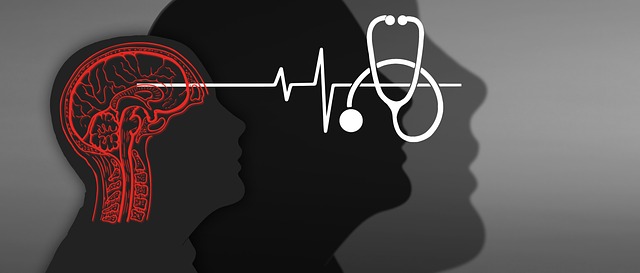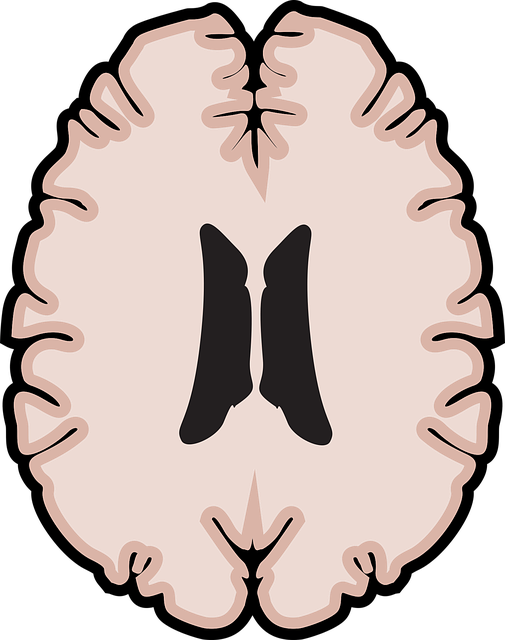Understanding mental health disorders like Westminster Adjustment Disorder (WAD) is crucial for developing effective wellness apps. Apps tailored for WAD should incorporate personalized features such as goal settings, mood tracking, mindfulness exercises, and professional support. Community outreach programs promote a sense of belonging, vital for depression and burnout prevention. Effective therapy apps for WAD should include risk assessment tools, emotional intelligence components, customizable therapy plans, regular check-ins with live therapists, and educational resources to create a supportive environment. Integrating evidence-based practices like cognitive-behavioral techniques and mindfulness practices fosters resilience and confidence, emphasizing continuous monitoring for long-term well-being. The market for mental wellness apps is growing, driven by acceptance of digital tools as supplementary therapy methods, especially among younger generations comfortable with technology. Privacy remains a critical concern, prompting developers to implement robust security measures. AI advancements promise more precise risk assessments and enhanced personalized care in the future.
“The rise of mental wellness apps offers a promising avenue for support and treatment, especially with conditions like Westminster Adjustment Disorder. This article explores the comprehensive development process of such applications, from understanding foundational mental health disorders to implementing specific strategies for unique cases like Westminster Adjustment Disorder. We’ll delve into key features, evidence-based practices, market trends, and privacy concerns, providing insights into how effective therapy apps can revolutionize access to care.”
- Understanding Mental Health Disorders: A Foundation for App Development
- Westminster Adjustment Disorder: Identifying and Addressing Specific Needs
- Key Features of an Effective Therapy App
- Integrating Evidence-Based Practices in Digital Therapeutics
- Market Trends, User Privacy, and the Future of Mental Wellness Apps
Understanding Mental Health Disorders: A Foundation for App Development

Understanding Mental Health Disorders is a pivotal step in developing effective wellness apps. Each disorder, from Anxiety to Depression and Burnout, presents unique challenges that require tailored interventions. For instance, Westminster Adjustment Disorder, characterized by significant adjustments following a traumatic or highly stressful event, calls for specific coping mechanisms and therapy types. App developers must collaborate with mental health professionals to ensure their digital tools accurately reflect evidence-based practices.
By incorporating features like personalized goal settings, mood tracking, mindfulness exercises, and access to professional support, wellness apps can offer valuable assistance in managing these conditions. Furthermore, integrating community outreach program implementations can foster a sense of belonging and peer support, playing a crucial role in Depression Prevention and Burnout Prevention efforts.
Westminster Adjustment Disorder: Identifying and Addressing Specific Needs

The Westminster Adjustment Disorder (WAD) is a unique mental health challenge that requires tailored therapy approaches to identify and address its specific needs. WAD often manifests as an adjustment difficulty after significant life changes or traumatic events, leading to symptoms like severe anxiety, depression, and disorientation. Mental wellness app developers must recognize this disorder’s impact on individuals’ daily lives and work towards creating tools that support effective therapy.
By integrating features for risk management planning and inner strength development, apps can empower users to manage their WAD effectively. Techniques such as mindfulness exercises, stress reduction strategies, and gradual exposure therapies have proven beneficial in Anxiety Relief for those dealing with this disorder. Customizable plans that cater to individual needs and preferences can significantly enhance the therapeutic journey, making mental wellness apps valuable resources in the digital age.
Key Features of an Effective Therapy App

An effective therapy app should incorporate several key features to enhance user experiences and outcomes, especially for those seeking treatment for conditions like Westminster Adjustment Disorder. Firstly, a robust risk assessment tool is crucial for mental health professionals. This allows them to gauge potential risks and tailor interventions accordingly. Apps that include emotional intelligence-based components have been shown to improve user engagement and outcomes. They help users recognize and manage their emotions more effectively.
Additionally, addressing the Mental Illness Stigma Reduction Efforts within the app can foster a safer and more supportive environment for users. This could involve encouraging open discussions about mental health, providing educational resources, and fostering peer support communities. Features such as customizable therapy plans, regular check-ins, and access to live therapists can significantly contribute to a user’s overall wellness journey.
Integrating Evidence-Based Practices in Digital Therapeutics

In the realm of digital therapeutics, integrating evidence-based practices is paramount to ensuring the efficacy and reliability of mental wellness apps. For instance, Westminster Adjustment Disorder Therapy leverages clinical research to provide structured support for individuals dealing with adjustment issues. This approach combines cognitive-behavioral techniques, mindfulness practices, and other proven strategies to foster resilience building and confidence boosting. By adhering to evidence-based methods, these apps offer a safe and accessible environment for users to navigate their mental health journeys.
Moreover, mental wellness apps should incorporate features that support risk management planning for mental health professionals. This involves not only tracking user progress but also enabling practitioners to intervene promptly through tailored recommendations and resources. Such integration not only enhances the therapeutic experience but also underscores the importance of continuous monitoring in maintaining long-term mental well-being.
Market Trends, User Privacy, and the Future of Mental Wellness Apps

The market for mental wellness apps is experiencing a significant surge, reflecting a growing recognition of digital tools’ potential in supplementing traditional therapy methods. According to recent trends, users increasingly prefer accessible, personalized, and discrete solutions for their mental health needs. This shift is particularly evident among younger demographics who are comfortable with technology, seeking solutions like Westminster Adjustment Disorder Therapy apps that offer convenience and anonymity. Apps focused on trauma support services and mental wellness coaching programs development are gaining traction as well, catering to a wide range of issues from stress management to anxiety disorders.
Privacy remains a paramount concern in this burgeoning industry, especially given the sensitive nature of user data. Mental wellness app developers must prioritize robust security measures to protect user information, ensuring compliance with privacy regulations like GDPR and HIPAA. This commitment to user privacy not only builds trust but also fosters long-term engagement, as individuals feel safer sharing their personal struggles and progress. As technology continues to evolve, the future of mental wellness apps looks promising, with advancements in AI potentially enabling more accurate risk assessments for mental health professionals, further enhancing personalized care and support.
Mental wellness apps have the potential to revolutionize access to therapy, especially for conditions like Westminster Adjustment Disorder. By integrating evidence-based practices and focusing on key features that cater to specific needs, developers can create effective digital therapeutics. As market trends evolve, prioritizing user privacy remains crucial for fostering trust. With ongoing innovation, these apps could become essential tools in navigating the complexities of mental health, offering support to those seeking relief from disorders like Westminster Adjustment Disorder therapy.














